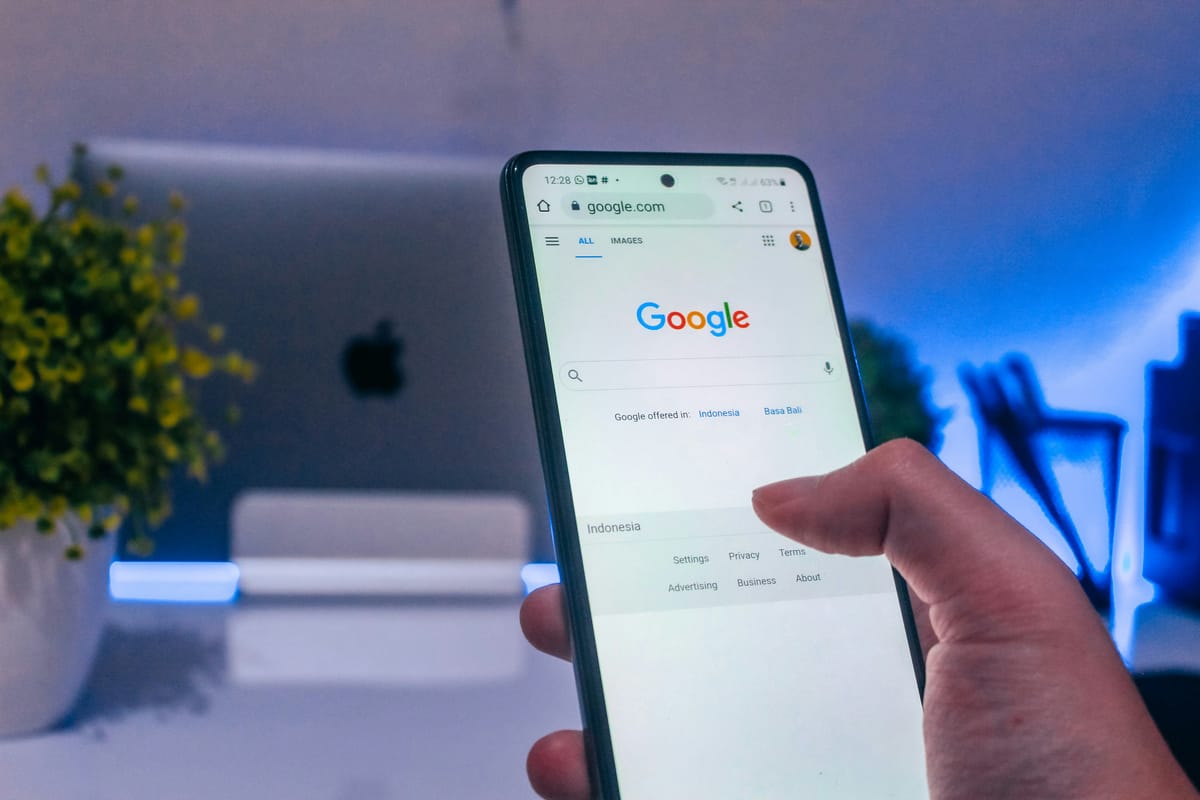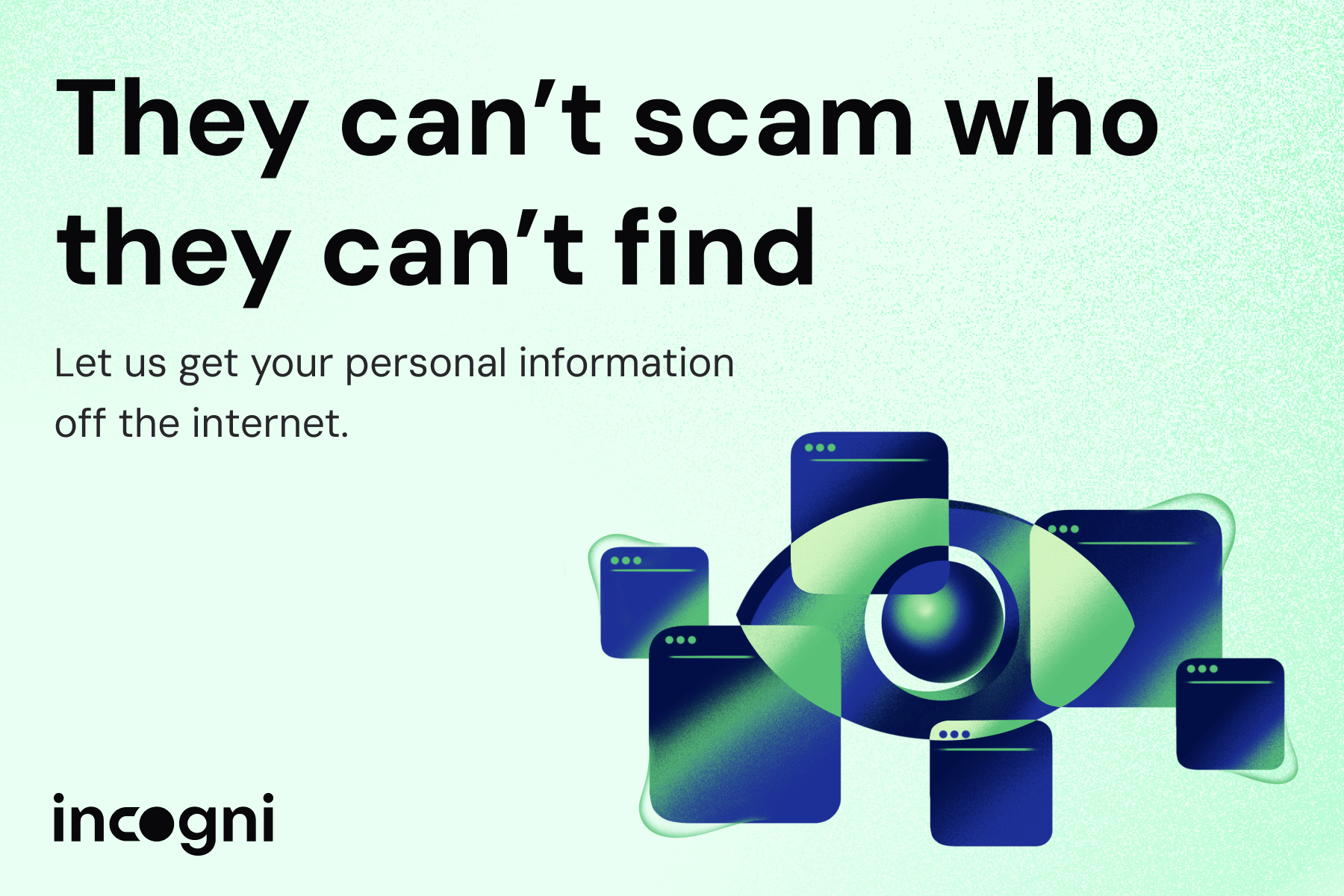Google may be on the brink of a breakup
After two blistering losses in court, a new era for the internet may be coming into view

It took a couple of decades for antitrust law to catch up with the world’s biggest companies. But over the past year, lawyers for the US government have successfully made their case that the biggest platforms have created illegal monopolies — and the solutions they are now proposing could begin to reshape the web.
Last week, we discussed the government’s effort to break up Meta, which is now in its second week at trial. Today, let’s talk about a similar effort to break up Google. While the two antitrust cases against the company in the United States are likely to play out over years, recent developments suggest that Google is going to have a difficult time avoiding at least a partial breakup of its business.
I.
Over the past few days, we’ve seen two key developments in the government’s legal battle against Google. On Thursday, U.S. District Judge Leonie Brinkema ruled that Google maintains an illegal monopoly over segments of the online advertising technology market. And today, following a loss last year in the antitrust trial targeting its search monopoly, Google went back to trial to fight with the government over its proposed remedies.
Let’s take the search case first. I’ve previously written about the government’s plan to force the spinout of Google’s Chrome browser, Google’s response, and what I see as the likeliest outcomes from the trial.
In short: I see little evidence that transferring Chrome to another giant tech company would significantly change the search market, since most people will continue to choose Google as their search engine. But some of the government’s other proposals could have a meaningful effect.
One such proposal is to force Google to license data about its search queries, results, and what users click on to its rivals. Today, Google controls so much of the search market that other companies struggle to match its quality. Without a critical mass of clicks, their indexes of the web are inferior.
The European Union’s Digital Markets Act already requires Google to share search data on more than 1 billion historical queries. Google competitors like DuckDuckGo have called on the US government to go further, offering an API of real-time searches.
On the first day of the remedies trial, Judge Amit Mehta indicated that he is thinking along similar lines. Mehta appeared to express skepticism that Google’s ownership of Chrome is a material cause of Google’s search monopoly. This seems fair to me; after all, the government’s case targeted the exclusive agreements that Google signs with Apple and other device manufacturers to ensure default placement as the search engine for their operating systems. (It has paid Apple around $20 billion a year for this privilege.) The case did not make many arguments about Chrome, a browser that millions of people go out of their way to download on macOS, iOS, Windows, and other platforms.
On the other hand, as Erin Woo noted at The Information, Mehta emphasized that the search data Google collects from the clicks and taps on search results are the “fruits” of those device maker agreements — and thus something that the remedy must address. Given that statement, then, it seems even more likely that Mehta will require Google to share search data.
On Monday, Google made it clear that it would hate this. Here’s David Pierce at The Verge:
John Schmidtlein, one of the lead attorneys representing Google in the case, argued in his own opening remarks that what the DOJ is asking for would essentially mean white-labeling Google and making it available to competitors around the industry. In the long run, Schmidtlein argued, competitors would be able to use Google’s search index to build and train their own products, while Google is essentially forbidden (thanks to the other parts of the remedies) from making the deals and investments required to keep winning. But even in the near term, he said, “while they’re figuring all that out, you can cut and paste Google’s search results and call them your own.” Schmidtlein also argued that Google’s search data includes massive quantities of private information, which would be dangerous for other companies to have.
One counterpoint is that Google has already had to do a version of this in the European Union, to no apparent detriment to Google. Another is that you could place a time limit on these data-sharing agreements. Give DuckDuckGo, Kagi and other search engines a few years to build out their indexes and see if they can grab market share. If they can, end the data-sharing requirement and make them fend for themselves. And if they can’t, perhaps other strategies will be necessary.
"Undoing 15 years of illegal monopoly maintenance will take more than weak contract restrictions, it will require a range of remedies to create enduring competition," said Kamyl Bazbaz, senior vice president of public affairs at DuckDuckGo, in a statement.
One strategy the court seems likely to implement is to ban the default-placement deals that were the spark for the lawsuit in the first place. But there remains much uncertainty over how this would affect the market, in large part because we don’t know how device manufacturers will respond. Apple seems unlikely to make Google its default search engine for free when it was previously paid $20 billion for the privilege, even if Google remains the best search engine on the market today. But would it risk making DuckDuckGo the default? How about Bing?
We simply don’t know. What we do know is that defaults are hugely consequential — and if Apple did switch the default to another search engine, Google would likely lose market share. An EU-style “choice screen” that asks users to set their own default might seem more appealing to Apple and Google — but choice screens in Europe haven’t affected Google’s market share in the slightest, and I doubt Mehta would accept them as a monopoly remedy.
II.
And while Mehta weighs his options, Google has another remedy phase to prepare for.
Here’s David McCabe at the New York Times:
Google acted illegally to maintain a monopoly in some online advertising technology, a federal judge ruled on Thursday, adding to legal troubles that could reshape the $1.86 trillion company and alter its power over the internet.
Judge Leonie Brinkema of the U.S. District Court for the Eastern District of Virginia said in a 115-page ruling that Google had broken the law to build its dominance over the largely invisible system of technology that places advertisements on pages across the web. The Justice Department and a group of states had sued Google, arguing that its monopoly in ad technology allowed the company to charge higher prices and take a bigger portion of each sale.
“In addition to depriving rivals of the ability to compete, this exclusionary conduct substantially harmed Google’s publisher customers, the competitive process, and, ultimately, consumers of information on the open web,” Judge Brinkema said.
I was somewhat surprised that Google had lost the search monopoly case. But I always expected it would lose the ad monopoly case: it has been clear for at least a decade that Google dominates the online advertising market, particularly the part of it that publishers depend on to host ads on their sites.
The judge’s 115-page ruling illuminates how Google built and pressed its advantage in great detail: making tiny adjustments to online advertising auctions to ensure that it won in the vast majority of cases, introducing fees and other requirements that prevented rivals from gaining a foothold, and illegally tying together two key components of the online ad market: Google Ad Exchange (aka AdX), a real-time marketplace for buying and selling ads; and Doubleclick for Publishers (DFP), the ad server platform that lets publishers manage and serve their ad inventory.
“We won half of this case and we will appeal the other half,” Lee-Anne Mulholland, the company’s vice president for regulatory affairs, said in a statement. “The Court found that our advertiser tools and our acquisitions, such as DoubleClick, don’t harm competition. We disagree with the Court’s decision regarding our publisher tools. Publishers have many options and they choose Google because our ad tech tools are simple, affordable and effective.”
I spoke with a Google representative today, and the company told me it believes the judge did not properly apply past precedents in her ruling. In particular, the company believes Verizon v. Trinko prevents companies from being forced to offer services to their competitors. (This is known as the “refusal to deal” doctrine.)
In her ruling, though, Judge Brinkema argued that Trinko means companies don’t have to offer services to competitors — but this case shows Google placing illegal constraints on its customers. For publishers to get access to AdX, and the millions of advertisers who use it, Google forces them to use its ad server.
“The tie increased Google’s scale, decreased rivals’ scale, caused some rivals to exit the publisher ad server market, and harmed competition, customers, and Internet users,” Brinkema wrote. (Ben Thompson has a nice analysis of the implications of Brinkema’s interpretation of Trinko, which goes well beyond Google.)
Google tells me it intends to fight both the search and the ads cases all the way to the end, as you would expect. And it has won victories along the way, gradually whittling away at the cases’ scope.
At the same time, the two cases collectively represent the most consequential antitrust losses in the consumer tech industry since the United States. vs. Microsoft in 2001. The company now faces the possible forced divestiture of Chrome and the breakup of the advertising engine that generates the bulk of Google’s profits. The government has also suggested that it may be necessary to force the sale of Android.
It is unlikely the government will achieve all of that. But I’m increasingly convinced it will achieve something. Changes are coming to search, and search advertising, at the precise moment that a new crop of AI-powered competitors appear poised to take advantage. Google remains too big, and too smart, for the proposed changes to disrupt its place at the center of the tech ecosystem. But for the first time in a long time, and despite its best efforts, that ecosystem is growing — and now finally, one way or another, Google is going to have to compete with them.

Sponsored

Keep Your Private Data Off The Dark Web
Every day, data brokers profit from your sensitive info—phone number, DOB, SSN—selling it to the highest bidder. What happens then? Best case: companies target you with ads. Worst case: scammers and identity thieves breach those brokers, leaving your data vulnerable or on the dark web. It's time you check out Incogni. It scrubs your personal data from the web, confronting the world’s data brokers on your behalf. And unlike other services, Incogni helps remove your sensitive information from all broker types, including those tricky People Search Sites. Help protect yourself from identity theft, spam calls, and health insurers raising your rates.
Plus, just for Platformer readers: Get 55% off Incogni using code PLATFORMER

Governing
- The US imposed more chip export limits on Nvidia and AMD, stopping even more semiconductors from flowing to China as the AI race intensifies. (Liza Lin and Amrith Ramkumar / Wall Street Journal)
- Nvidia CEO Jensen Huang reportedly flew to Beijing to meet with clients, including DeepSeek, to discuss new chip designs. (Eleanor Olcott, Cheng Leng, Zijing Wu and Ryan McMorrow / Financial Times)
- A look at Tim Cook’s cautious relationship with Trump, which led to Apple’s products being exempted from harsh tariffs. (Jeff Stein, Elizabeth Dwoskin and Cat Zakrzewski / Washington Post)
- Trump’s trade war could hinder the US’s AI dominance, executives and experts say, as costs to build AI data centers and semiconductor fabrication plants go up. (Christian Davies, Kathrin Hille, Michael Acton and George Hammond / Financial Times)
- National security guardrails have disappeared in the Trump administrations, which has created room for more disinformation operations, cybersecurity experts warn. (Helene Cooper and Julian E. Barnes / New York Times)
- Meta is having some success convincing Congress that Apple and Google should bear the burden of age verification, not Facebook and Instagram. (Ruth Reader / Politico)
- Meta will soon change account settings if it detects an underage user through its AI tool. (Mia Sato / The Verge)
- A look at the various tactics Elon Musk employs to negotiate with the mothers of his children in his quest to make a “legion” of babies. (Dana Mattioli / Wall Street Journal)
- Community colleges say they are dealing with floods of bots pretending to be students, with the aim of stealing financial aid funds. (Jakob McWhinney / Voice of San Diego)
- Law enforcement’s use of vast amounts of private personal data from cell towers is unconstitutional, a Nevada judge ruled. (Matthew Gault / 404 Media)
- New Jersey is suing Discord, alleging that the app put younger users in danger through “deceptive and unconscionable business practices.” (Justin Ling / Wired)
- As the election in Canada approaches, Canadians are increasingly seeing popular right-wing pages on Facebook and Instagram as news continues to be blocked. (Matina Stevis-Gridneff and Stuart A. Thompson / New York Times)
- The EU reportedly delayed penalizing Apple and Meta as the bloc negotiates for a trade deal with the US. (Kim Mackrael and Sam Schechner / Wall Street Journal)

Industry
- OpenAI’s proposed social feed for ChatGPT, in which tweet equivalents might be named “yeets,” could help make the chatbot easier to use. (Stephanie Palazzolo / The Information)
- Metr, an organization that frequently partners with OpenAI for safety evaluations, said OpenAI let it test the o3 model for an unusually short time before its release. Something we are hearing more and more out of OpenAI lately. (Kyle Wiggers / TechCrunch)
- ChatGPT users are realizing o3 is worryingly good at finding locations based on uploaded images. The end of geo-guessing? (Kyle Wiggers / TechCrunch)
- The new o3 and o4-mini AI models hallucinate more than some of OpenAI’s older models, internal tests show. And no one is quite sure why. (Maxwell Zeff / TechCrunch)
- OpenAI is launching Flex processing, a cheaper API option with slower response times. (Kyle Wiggers / TechCrunch)
- Meta blocked support for Apple Intelligence on its apps, including Facebook, WhatsApp and Threads. Arguably the best thing that Meta has done for users this year. (Filipe Espósito / 9to5Mac)
- Meta reportedly asked Amazon and Microsoft to help pay for Llama’s training, and no one has offered a good reason why. Not a trillion-dollar company asking for handouts? (Kalley Huang and Erin Woo / The Information)
- Instagram is rolling out Blend, a feature that lets users create customized and personalized reels feeds. (Aisha Malik / TechCrunch)
- Facebook and Instagram are losing time spent on the apps as more people move to direct messaging apps, Zuckerberg testified. (Kalley Huang / The Information)
- A review of MeWe, the social media app the FTC says is a big competitor to Facebook. (Katie Notopoulos / Business Insider)
- Google’s One AI Premium plan is now available to college students in the US for free. Meaning that now ChatGPT, Anthropic's Claude, and Gemini are all free to college students. (Jess Weatherbed / The Verge)
- The Gemini 2.5 Flash model is rolling out on the Gemini app in preview. (Ryan Whitwam / Ars Technica)
- A look into Google’s AI future, as it faces criticisms for inaccuracies in AI Overviews while ChatGPT’s popularity grows. (Erin Woo / The Information)
- A look at how YouTube is betting on creators and their data to improve AI. "In five years, every video uploaded to YouTube could be dubbed automatically into every spoken language." (Mark Bergen / Bloomberg)
- Bluesky is rolling out official blue-check verification. I like the approach here, which relies on "trusted organizations" to do the verifying. So the New York Times can verify its own reporters, for example. (Amanda Silberling / TechCrunch)
- Former Y Combinator president Geoff Ralston launched Safe Artificial Intelligence Fund, meant for startups focused on “AI safety, security and responsible deployment.” (Julie Bort / TechCrunch)
- Wikipedia is partnering with data science community platform Kaggle to publish a dataset optimized for AI training, in an effort to dissuade AI companies from scraping it. (Jess Weatherbed / The Verge)
- Popular AI ranking site Chatbot Arena is turning from an academic research project into a company. (Rachel Metz / Bloomberg)
- While AI generates tons of carbon emissions, it’s also better than humans in figuring out how to fight climate change, this piece argues. (Coco Liu / Bloomberg)

Those good posts
For more good posts every day, follow Casey’s Instagram stories.

(Link)

(Link)

(Link)

Talk to us
Send us tips, comments, questions, and monopoly remedies: casey@platformer.news.





